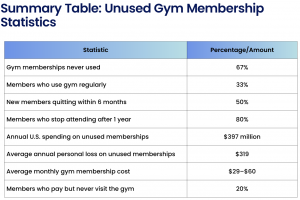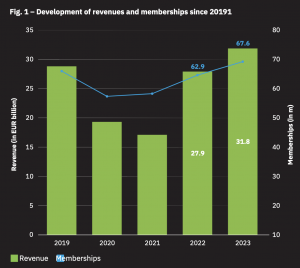Human Centric Group Unpacks the Delusional Economy: Why People Buy Hope, Not Products

Giacomo Tarabelli, Junior Consultant at Human Centric Group, sharing insights on the Delusional Economy

“Skip the Product. Sell the Delusion”. How consumers project identity and transformation onto everyday purchases like high-protein yogurt.
New insights from Human Centric Group reveal how aspiration, identity, and emotion drive purchasing decisions in today's delusional economy.
In a sharp new article titled “Skip the Product. Sell the Delusion”, Giacomo Tarabelli of Human Centric Group explores what he calls the Delusional Economy: a fast-growing market built not on utility, but on aspiration.
From nootropics to productivity apps to protein yogurt, modern consumption is increasingly symbolic. “We’re not paying for features—we’re paying for identity,” writes Tarabelli. “It’s not what the product does. It’s what it represents.”
The Delusional Economy, as defined in the article, thrives on three key behavioral principles:
• Temporal Discounting: prioritizing the emotional high of starting something over the effort of finishing it.
• Fantasy Projection: buying into the imagined version of ourselves we want to be.
• Identity Salience: choosing products that reflect the persona we aspire to embody.
The article connects these insights to consumer data:
• 52% of those who register for MOOCs never start the course (Science)
• 50% of gym memberships go unused after 6 months (Mirrors Delivered)
• Only 18% of cosmetic advertising claims are scientifically backed (Medical Press)
• In 2023, the European fitness market generated €31.8 billion in revenue—up 14% year-over-year—while total gym membership reached 67.7 million, a 7.5% annual increase (Deloitte European Health & Fitness Market Report 2024)
“People aren’t paying for results,” Tarabelli argues. “They’re paying for the belief that they might become someone else.”
The article unpacks examples across categories:
• Protein yogurt is no longer just nutrition—it’s a vote for future discipline.
• Nootropic drinks offer more emotional theatre than scientific gains.
• Gymshark apparel sells not performance, but the illusion of belonging to a fitter, more confident tribe.
Brands that succeed in today’s delusional economy do more than meet needs. They fuel fantasies.
But the piece also issues a challenge: “Tapping into aspiration is powerful—but the brands that win long-term will bridge the gap between promise and payoff.” Tarabelli suggests that the future belongs to companies that combine emotional appeal with real utility, creating more conscious, outcome-driven engagement.
The full article is now live on Human Centric Group’s website and offers a compelling new lens for marketers, strategists, and anyone looking to decode what really drives modern consumer behavior.
About the Author
Fuelled by curiosity and a passion for big ideas, Giacomo Tarabelli earned a BBA in London with a focus on Entrepreneurship, followed by a Master’s in International Management from Luiss. Throughout the academic journey, collaborations included global leaders such as Meta, Hermès, and Coca-Cola HBC.
The professional path began in Strategic Marketing at Human Centric G, under the mentorship of Professor Matteo Rinaldi, evolving into a consultancy role across diverse industries. Experience ranges from crafting marketing strategies for FMCG giants like Carlsberg to supporting the growth of family-owned aviation companies such as Tecnam.
Guided by Einstein’s philosophy, “I am neither clever nor especially gifted. I am only very, very curious.”
Media Enquiries
HUMAN CENTRIC GROUP LTD
+44 20 3693 4480
email us here
Visit us on social media:
LinkedIn
Instagram
TikTok
Legal Disclaimer:
EIN Presswire provides this news content "as is" without warranty of any kind. We do not accept any responsibility or liability for the accuracy, content, images, videos, licenses, completeness, legality, or reliability of the information contained in this article. If you have any complaints or copyright issues related to this article, kindly contact the author above.


